What Is an AI Agent? with AI agent example
An AI agent is software that perceives, processes, and acts to achieve goals autonomously. It uses data to make decisions, learn from experience, and function without human intervention.
An AI agent is software that perceives, processes, and acts to achieve goals autonomously. It uses data to make decisions, learn from experience, and function without human intervention.
AI Chatbots for customer support
Siri & Alexa (Virtual Assistants)
Fraud Detection Systems in banking
AI Shopping Agents (e.g., Amazon)
HR AI Agent (e.g. HireVue)
Marketing AI Agent (e.g. Jasper)
AI agents come in different types: simple reflex, model-based reflex, goal-based, utility-based, and learning agents, each designed to perform specific tasks. Below is an overview of the main types of AI agents and AI agent use cases
These agents act in response to immediate inputs, with no memory of past actions.
These agents are designed to achieve a specific objective.
These agents choose actions that maximize their utility, optimizing for the best possible outcome.
These agents learn from experience and improve their performance over time.
When it comes to AI agents, the best AI agent frameworks often depend on the specific use case, but some frameworks have proven to be versatile and powerful across a range of applications. AI development services often leverage these frameworks to build efficient and intelligent systems. Here are some of the most widely used frameworks in AI agent architecture.
 LangChain
LangChain  Node.js
Node.js  PostgreSQL
PostgreSQL Here’s how we develop custom AI agents—from idea to deployment. Step-by-Step AI Agent Workflow:
The first step in AI agent development is defining its purpose. Identifying the problem the agent will solve is crucial for creating an effective solution. For instance, it could be a customer support chatbot answering FAQs or an AI email assistant categorizing emails by priority. A clear purpose ensures the agent meets specific needs and delivers value.
Key questions to consider: What task will the AI agent perform?
What task will the AI agent perform? Who is the end user, and how will they interact with it?
Who is the end user, and how will they interact with it? What type of input will it handle (text, voice, images)?
What type of input will it handle (text, voice, images)? What decisions should it make?
What decisions should it make? How much autonomy will it require?
How much autonomy will it require?
Once the purpose is defined, choose the appropriate development tools—languages, libraries, and AI agent frameworks—based on your agent's function.
AI Frameworks, Libraries and Programming Languages: Python: Ideal for NLP, machine learning, and chatbots.
Python: Ideal for NLP, machine learning, and chatbots. JavaScript: Best for web-based AI tools using TensorFlow.js.
JavaScript: Best for web-based AI tools using TensorFlow.js. Java: Preferred for enterprise-level AI applications.
Java: Preferred for enterprise-level AI applications. C++: Suited for performance-critical applications like robotics.
C++: Suited for performance-critical applications like robotics. For NLP: spaCy, Transformers (Hugging Face), NLTK.
For NLP: spaCy, Transformers (Hugging Face), NLTK. For Machine Learning: TensorFlow, PyTorch, Scikit-learn.
For Machine Learning: TensorFlow, PyTorch, Scikit-learn. For Computer Vision: OpenCV, Keras.
For Computer Vision: OpenCV, Keras. For Speech Recognition: Google Speech-to-Text, CMU Sphinx.
For Speech Recognition: Google Speech-to-Text, CMU Sphinx. For Chatbots: Rasa, Dialogflow.
For Chatbots: Rasa, Dialogflow.
Data is the fuel for AI. Without accurate and relevant data, even the best-designed models will fail.
Data Collection Steps: Identify Data Sources: Pull from internal tools (CRM, ERP) or external sources (surveys, reviews).
Identify Data Sources: Pull from internal tools (CRM, ERP) or external sources (surveys, reviews). Collect Quantitative Data: Metrics like user behavior, system logs, or sales figures.
Collect Quantitative Data: Metrics like user behavior, system logs, or sales figures. Gather Qualitative Insights: User interviews, support feedback, or stakeholder input.
Gather Qualitative Insights: User interviews, support feedback, or stakeholder input. Ensure Data Quality: Keep datasets clean, current, and well-labeled to prevent errors in training.
Ensure Data Quality: Keep datasets clean, current, and well-labeled to prevent errors in training.
This phase turns goals into a structured plan using an AI agent builder
Key Components: AI Model Selection: Use pre-trained models or build custom ones.
AI Model Selection: Use pre-trained models or build custom ones. Workflow Architecture: Map out the user input to the agent response process.
Workflow Architecture: Map out the user input to the agent response process. Technology Stack: Choose AI Agent frameworks and databases.
Technology Stack: Choose AI Agent frameworks and databases. User Interface (UI): Design an intuitive interface, such as chat UIs or dashboards.
User Interface (UI): Design an intuitive interface, such as chat UIs or dashboards. Integration Points: Ensure seamless connections with external systems (APIs, CRMs).
Integration Points: Ensure seamless connections with external systems (APIs, CRMs). Feedback Loop: Establish mechanisms for continuous improvements.
Feedback Loop: Establish mechanisms for continuous improvements.
This is the build phase, where the logic, models, integrations, and AI agent development come to life.
Development Priorities & Model Training Approaches: Incident detection and real-time monitoring for service agents.
Incident detection and real-time monitoring for service agents. Classification and prioritization of tasks and incidents.
Classification and prioritization of tasks and incidents. Automated actions like responding to users or managing systems.
Automated actions like responding to users or managing systems. Supervised Learning: For classification tasks.
Supervised Learning: For classification tasks. Unsupervised Learning: For anomaly detection.
Unsupervised Learning: For anomaly detection. NLP: For processing text data.
NLP: For processing text data. Reinforcement Learning: For agents optimizing through trial-and-error.
Reinforcement Learning: For agents optimizing through trial-and-error.
Before full deployment, rigorously test your AI agent in a controlled environment.
Testing Approaches: Simulated scenarios to evaluate performance.
Simulated scenarios to evaluate performance. Human-in-the-loop (HITL) for monitoring AI decisions.
Human-in-the-loop (HITL) for monitoring AI decisions. Continuous learning with new data to improve over time.
Continuous learning with new data to improve over time.
Post-deployment, your AI agent must be continuously evaluated and improved or Update the agent with new features or integrations based on feedback.
Key Performance Indicators (KPIs): Resolution time
Resolution time Accuracy of decisions
Accuracy of decisions Feedback from users or team members
Feedback from users or team members System uptime and scalability
System uptime and scalabilityAI agents automatically identify and qualify leads, helping sales teams focus on high-quality prospects.
AI agents engage with potential customers at any time, ensuring no lead is missed.
AI suggests products based on customer preferences, boosting sales and conversions.
AI sends follow-up messages to nurture leads, keeping them engaged throughout the sales process.
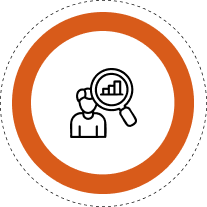
AI analyzes customer data to provide insights for targeted, effective marketing campaigns.
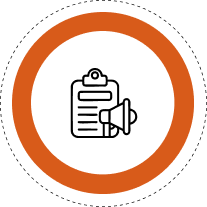
AI delivers personalized messages to customers, improving engagement and campaign results.
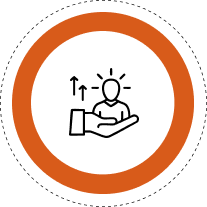
AI nurtures leads with tailored content, moving them through the marketing funnel.
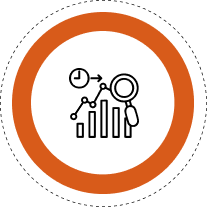
AI predicts customer behavior, helping marketing teams make smarter, proactive decisions.

AI answers common customer questions quickly, reducing wait times and improving satisfaction.
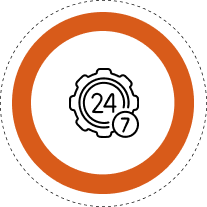
AI agents provide round-the-clock assistance, ensuring customers always get help when need.
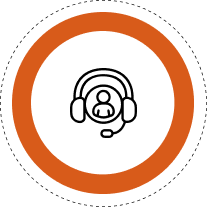
AI remembers customer interactions, offering tailored support based on past experiences.
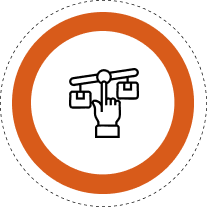
AI recognizes complex issues and smoothly escalates them to human agents when need.
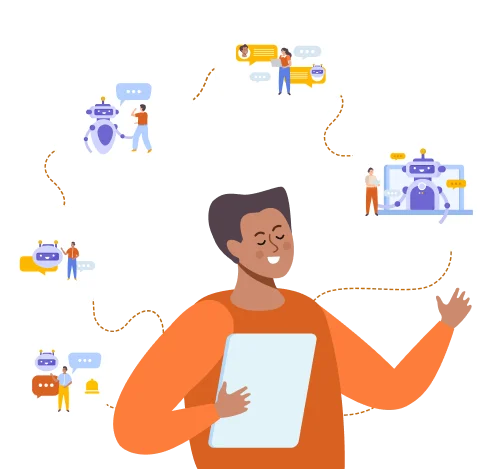
We’re a top AI agent development company specializing in tailored, scalable solutions that fit your business goals—not just plug-and-play tools.
Why Choose Tagline Infotech?Fill the form to schedule a quick interview with Tagline Infotech. Boost your business with innovative and scalable solutions.
We are a leading AI agent development company. Our in-house team of AI developers creates custom AI agents tailored to your needs. Using a powerful tech stack, we ensure these agents are intelligent, scalable, and seamlessly integrate into your business, offering more value and adaptability than plug-and-play solutions. Here’s how:
| Aspects | Custom AI Agent Solutions | Plug-and-Play AI Agent Solutions |
|---|---|---|
| Who Builds It? | Built by in-house experts with domain knowledge | Built by third-party providers, often generic |
| Tech Stack | Advanced tools like LangChain, TensorFlow, Rasa, OpenAI API | Basic, template-based frameworks |
| Personalization | Fully tailored to your business and customers | Limited customization |
| Integration | Seamlessly fits into your current systems | May require integration workarounds |
| Scalability | Scales with your business growth | Limited adaptability |
| Flexibility | Adapts to changing needs | Fixed features and workflows |
| Support & Maintenance | Ongoing, personalized support | Generic, often third-party support |
| Performance | Optimized for your unique challenges | Lower efficiency, generic solutions |
AI agents automate tasks, improve decision-making, and enhance customer experiences in business.
AI agents boost sales, customer support, marketing, and operational efficiency across industries.
AI agent development includes planning, design, coding, integration, and ongoing testing.
Yes, AI agents easily integrate with tools like Salesforce and HubSpot to automate processes.
Frameworks like LangChain, Rasa, and TensorFlow are ideal for custom AI agents.
AI agent development typically takes 4-12 weeks, depending on complexity and customization.
Yes, AI agents follow privacy laws like GDPR and CCPA, ensuring secure data handling.

Digital Valley, 423, Apple Square, beside Lajamni Chowk, Mota Varachha, Surat, Gujarat 394101
D-401, titanium city center, 100 feet anand nagar road, Ahmedabad-380015
+91 9913 808 2851133 Sampley Ln Leander, Texas, 78641
52 Godalming Avenue, wallington, London - SM6 8NW